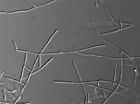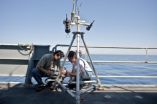The psychology of financial decision-making and economic crises
2010-09-24
(Press-News.org) How could the current financial crisis have happened? While fingers have been pointing to greedy banks, subprime-loan officers, and sloppy credit card practices, these are not the only contributors to the economic downturn. A new report in Psychological Science in the Public Interest, a journal of the Association for Psychological Science, examines the psychology of financial decision making, including the role of risk in making economic choices, how individuals behave in stock and credit markets, and how financial crises impact people's well-being.
Risk taking is a very important component of financial decision making—If we take out a big loan, will we be able to pay it back? Should we buy shares of a company that is unknown but has potential for great success? In this report, authors Tommy Gärling (University of Gothenberg, Sweden), Erich Kirchler (University of Vienna, Austria), Alan Lewis (University of Bath, UK), and Fred van Raaij (Tilburg University, The Netherlands) note that when it comes to making decisions under uncertainty, people tend to be more influenced by perceived risk than by objective risk. People who are extraverted and high in sensation seeking are likelier to take more and higher financial risks than are people high in conscientiousness and anxiety. "The general implication is that financial crises may have more serious consequences for people who are more likely to take financial risks," write the authors.
Efficient-market theory states that stocks should always be traded based on their real value. However, 5 minutes on the floor of the New York Stock Exchange reveals a different reality: Stock investors overreact to news (especially of events that threaten the world economy), selling winning stocks too soon while hanging on to losing stocks too long, and following other traders' leads in buying and selling stocks. According to Gärling and his colleagues, stock market investors are prone to cognitive biases (such as overconfidence), which are reinforced by affective and social influences and these may contribute to several phenomena observed in stock markets (e.g., volatility of stock prices, due to excessive trading).
Many people rely on credit, not just the plastic card kind, but also in the form of automobile financing and loans from friends. Credit use involves many different stages of decision making, including deciding whether or not to purchase a product using credit and determining a strategy for paying back the borrowed money. The authors observe that "many credit users are facing a complex task when they decide to take up credit and that they often fall prey to cognitive errors when anticipating their experiences with credit payback."
Financial crises take a large toll not only on people's wallets, but also on their behavior. Consumer confidence affects spending and saving. Individuals cope with financial crises in a number of ways, for example by shopping in cheaper stores and eating out less. Making lifestyle changes (e.g., selling the car, making their own clothing) is very difficult for most people and is often a last resort to dealing with economic troubles—these changes clearly signal to themselves and others that they are struggling financially.
Are financial crises inevitable? The authors argue that bringing about change in financial institutions may not be easy, but they offer suggestions for improving economic decision making. For example, educating consumers—by offering economics courses to children in school and teaching consumers how to appropriately handle credit—and by making financial institutions more responsible (e.g., banks offering Web-based programs to assist with budgeting).
###
For more information about this study, please contact: Tommy Gärling at tommy.garling@psy.gu.se.
Psychological Science in the Public Interest is a journal of the Association for Psychological Science. It publishes an eclectic mix of thought-provoking articles on the latest important advances in psychology. For a copy of the article "Psychology, Financial Decision Making, and Financial Crises" and access to other Psychological Science in the Public Interest research findings, please contact Keri Chiodo at 202-293-9300 or kchiodo@psychologicalscience.org.
END
ELSE PRESS RELEASES FROM THIS DATE:
2010-09-24
SAN ANTONIO, Texas, U.S.A. (Sept. 22, 2010) – Candida albicans, a fungus that kills more than 10,000 people with weakened immune systems each year, grows more dangerous as it forms and extends long strands of cells called hyphal filaments. In a paper published this month, UT Health Science Center San Antonio microbiologists describe a key factor involved in this damaging growth.
This finding may eventually lead to targets for antifungal strategies, the scientists said.
Patricia Carlisle, a Ph.D. student at the Health Science Center, and David Kadosh, Ph.D., assistant ...
2010-09-24
AURORA, Colo (Sept. 22, 2010) Antisocial boys who abuse drugs, break laws, and act recklessly are not just "bad" kids. Many of these boys may have malfunctioning brains, according to a new study by researchers at the University of Colorado School of Medicine.
"Brain responses to everyday rewards and punishments gradually guide most youngsters' decisions to conform with society's rules. However, when these seriously troubled kids experience rewards and punishments, and make decisions, their brains apparently malfunction," said Thomas Crowley, MD, a professor of Psychiatry ...
2010-09-24
WASHINGTON, DC (September 22, 2010) -- One-year data from the PARTNER clinical trial, published today in the New England Journal of Medicine, demonstrate that transcatheter aortic-valve implantation, compared with standard therapy, resulted in significantly lower rates of death among patients who cannot undergo surgery for aortic stenosis. The results will be presented tomorrow as a Late Breaking Trial at the 22nd annual Transcatheter Cardiovascular Therapeutics (TCT) scientific symposium.
Transcatheter aortic-valve implantation (TAVI) is a new procedure in which a bioprosthetic ...
2010-09-24
According to the NOAA Coral Reef Watch monitoring system, coral bleaching is likely in the Caribbean in 2010. With temperatures above-average all year, NOAA's models show a strong potential for bleaching in the southern and southeastern Caribbean through October that could be as severe as in 2005 when over 80 percent of corals bleached and over 40 percent died at many sites across the Caribbean. Scientists are already reporting coral bleaching at several Caribbean sites and severe bleaching has been reported from other parts of the world.
The NOAA Coral Reef Watch (CRW) ...
2010-09-24
There may be a very good reason that people naturally clutch their hand after receiving an injury. A new report published online on September 23 in Current Biology shows that self-touch offers significant relief for acute pain under experimental conditions. The researchers suggest that the relief comes from a change in the brain's representation of the rest of the body.
"Pain is quite an important, but also complicated, experience and can be caused in many different ways," said Patrick Haggard of University College London. "We show that levels of acute pain depend not ...
2010-09-24
Scientists have uncovered an alternative source for some of the damage associated with multiple sclerosis (MS), an incurable neuroinflammatory disorder. The research, published online by Cell Press on September 23rd in the journal Immunity, reveals a direct interaction between immune cells and neurons that plays a significant role in neuronal injury and may respond to therapeutic intervention.
MS is an autoimmune disease in which a person's own immune system attacks their central nervous system. Symptoms of MS are variable depending on which nerves are affected, but often ...
2010-09-24
1. Among HIV-Infected Kidney Disease Patients, African Americans are More Likely to Develop Kidney Failure and Die Prematurely
Washington, DC (September 17, 2010) — Because of improved antiretroviral therapies in recent years, HIV-infected individuals are living long enough to develop chronic conditions. Among African Americans, HIV infection is increasingly recognized as an important risk factor for developing chronic kidney disease. African American men and women are more likely to die from the complications of HIV infection compared with Caucasian men and women. To ...
2010-09-24
BOULDER, Colo. – Scientists have known for decades that time passes faster at higher elevations—a curious aspect of Einstein's theories of relativity that previously has been measured by comparing clocks on the earth's surface and a high-flying rocket.
Now, physicists at the National Institute of Standards and Technology (NIST) have measured this effect at a more down-to-earth scale of 33 centimeters, or about 1 foot, demonstrating, for instance, that you age faster when you stand a couple of steps higher on a staircase.
Described in the Sept. 24 issue of Science,* ...
2010-09-24
BP’s leaking oil well in the Gulf of Mexico was conclusively sealed this week, but even now, questions remain about the amount of oil that actually came out of it. Initially after the April 20 explosion, officials claimed that the flow could not be measured. Then, as public pressure for information mounted, they looked for ways to measure it, and started producing estimates: at first, 1,000 barrels a day; then 5,000; then 12,000 to 19,000; then upward from there. Now, in the first independent, peer-reviewed paper on the leak’s volume, scientists have affirmed heightened ...
2010-09-24
To understand the health effects of high cholesterol levels, doctors first need to assess malnutrition and inflammation status in their chronic kidney disease (CKD) patients, according to a study appearing in an upcoming issue of the Journal of the American Society Nephrology (JASN).
Patients with CKD often develop and die from cardiovascular disease (CVD). While it's well known that high cholesterol puts people at risk for CVD in the general population, the relationship is not so clear in CKD patients. In fact, research has shown that dialysis patients with higher cholesterol ...
LAST 30 PRESS RELEASES:
[Press-News.org] The psychology of financial decision-making and economic crises


